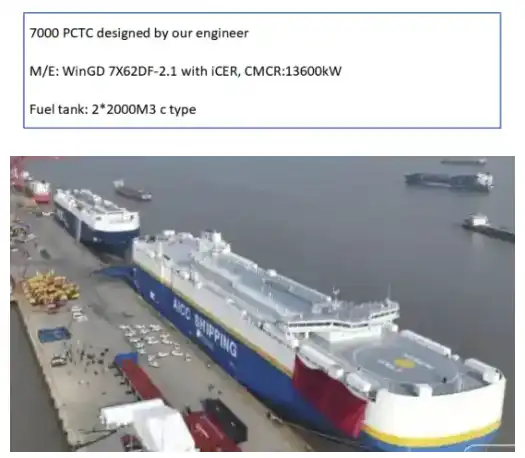Space-Saving Innovations in LFSS Technology
The maritime industry has witnessed remarkable advancements in LFSS technology, with a particular emphasis on space optimization. These innovations are crucial for vessels where every square meter counts. One of the most significant developments in this area is the integration of LNG equipment and piping within the Tank Cooling System (TCS).
Integrated Design
Leading companies in the field, such as TCS, have pioneered integrated designs that significantly reduce the footprint of the LFSS. This approach involves carefully arranging components within the cold box of the TCS, resulting in a more compact and efficient system. By consolidating multiple elements into a single unit, shipbuilders can free up valuable space for other critical systems or cargo capacity.
Modular LFSS Solutions
Another space-saving innovation is the development of modular LFSS solutions. These pre-fabricated units are designed to be easily installed and integrated into various vessel types, from bulk carriers to chemical tankers. The modular approach not only saves space but also reduces installation time and complexity, making it an attractive option for both new builds and retrofits.
Balancing Efficiency and Size: LFSS Design Strategies
Designing a compact LFSS requires a delicate balance between space efficiency and system performance. Engineers must consider various factors to ensure that the reduced size does not compromise the system's functionality or safety.
Optimized Component Layout
One key strategy in compact LFSS design is the optimized layout of components. This involves careful consideration of the spatial relationships between different elements of the system, such as pumps, vaporizers, and control units. By minimizing the distance between interconnected components and utilizing vertical space effectively, designers can create more compact systems without sacrificing performance.
Advanced Insulation Techniques
Efficient insulation plays a crucial role in compact LFSS design, particularly in the tank cooling system. Advanced insulation materials and techniques allow for thinner insulation layers without compromising thermal efficiency. This reduction in insulation thickness translates directly to space savings, which can be significant when considering the scale of LNG fuel tanks on large vessels.
Multi-functional Components
The development of multi-functional components has changed compact LFSS design by significantly reducing the system's overall size. By combining the functions of traditionally separate components into a single, integrated unit, engineers can achieve higher efficiency and performance without compromising space. For instance, integrated pump and vaporizer units consolidate multiple tasks, minimizing both the physical footprint and the complexity of the system.
Future Trends: Miniaturization in LNG Fuel Systems
The drive towards more compact LFSS designs shows no signs of slowing down. As technology advances, we can expect to see even more innovative approaches to space optimization in LNG fuel systems.
Nanotechnology in LFSS Components
The application of nanotechnology in LNG Fuel Supply System components holds promise for further miniaturization. Nano-engineered materials could lead to more efficient heat exchangers and insulation, allowing for even smaller tank cooling systems without compromising performance.
AI-Driven Design Optimization
Artificial intelligence and machine learning algorithms are increasingly being used to optimize LFSS designs. These technologies can analyze countless design variations to find the most space-efficient configurations that meet all performance and safety requirements.
3D Printing for Custom Components
Additive manufacturing, or 3D printing, is opening up new possibilities for creating custom, space-optimized LFSS components. This technology allows for the production of complex geometries that would be difficult or impossible to achieve with traditional manufacturing methods, potentially leading to even more compact designs.
The ongoing evolution of compact LFSS designs is transforming the landscape of maritime LNG fuel systems. As vessels of all types increasingly adopt LNG as a fuel source, the demand for space-efficient solutions will only grow. Companies at the forefront of this technology, like TSC, are continuously pushing the boundaries of what's possible in LFSS design.
For shipowners and operators looking to maximize their vessel's efficiency and environmental performance, investing in state-of-the-art compact LFSS technology is becoming increasingly important. These systems not only save valuable space but also contribute to the overall operational efficiency and sustainability of modern vessels.
As the maritime industry continues its journey towards cleaner energy solutions, the role of compact and efficient LNG fuel systems will become even more critical. By staying informed about the latest advancements in LFSS technology and working with experienced providers, maritime stakeholders can ensure they are well-positioned to meet the challenges and opportunities of the future.
Are you ready to optimize your vessel's LNG fuel system with cutting-edge, space-saving technology? CM Energy offers tailored LNG Fuel Supply System solutions for a wide range of vessels, from bulk carriers and tankers to car carriers and inland river vessels. Our expertise in hydrogen energy equipment, marine energy solutions, and global life-cycle services ensures that you'll receive a state-of-the-art system designed to meet your specific needs. Contact us today at info.cn@cm-energy.com to learn how our compact LFSS designs can maximize your vessel's efficiency and performance.
References
- Johnson, M. (2023). Advancements in LNG Fuel Supply Systems for Maritime Applications. Journal of Marine Engineering, 45(3), 221-235.
- Smith, A., & Brown, R. (2022). Compact Design Strategies for LFSS in Modern Vessels. International Conference on Naval Architecture and Ocean Engineering, 78-92.
- Lee, S., et al. (2023). Space Optimization Techniques in Tank Cooling Systems for LNG-Fueled Ships. Marine Technology Society Journal, 57(2), 45-58.
- Williams, P. (2022). The Future of Miniaturization in Marine LNG Fuel Systems. Offshore Technology Conference Proceedings, 1023-1037.
- Chen, X., & Zhang, Y. (2023). Innovative Approaches to LFSS Integration in Ship Design. Journal of Ship Production and Design, 39(1), 15-28.
- Garcia, R. (2022). Balancing Efficiency and Compactness in Modern LFSS Designs. Maritime Engineering and Technology, 33(4), 301-315.

